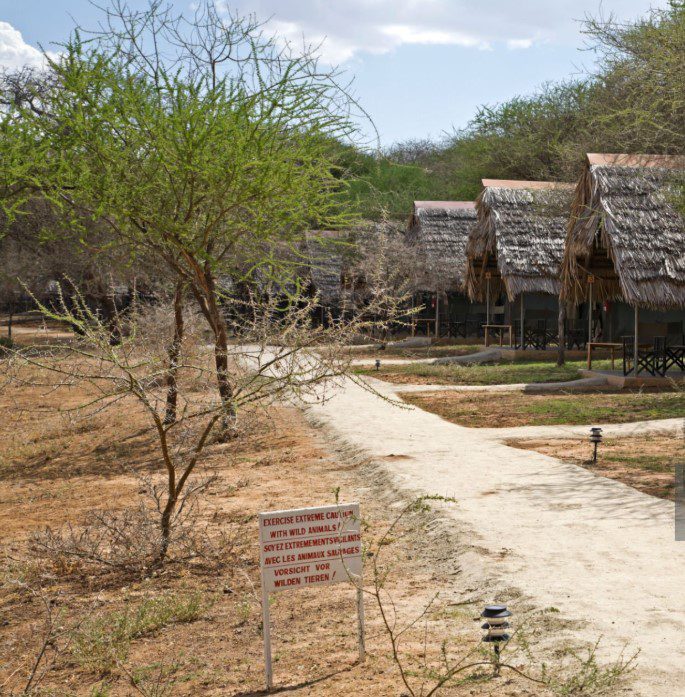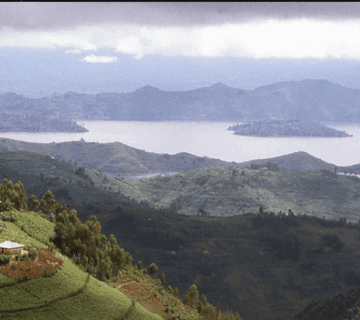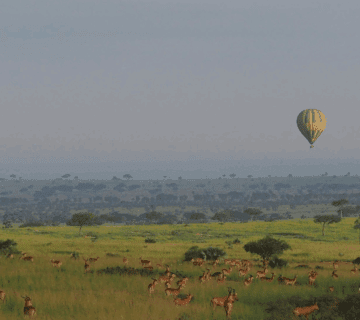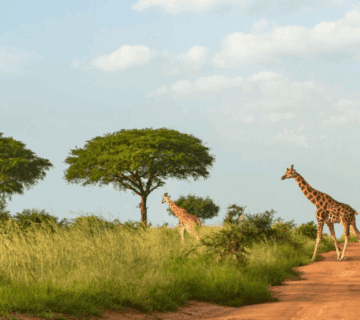Are There Eco-Lodges in Tanzania’s Parks?
Tanzania, home to some of the most iconic wildlife reserves and national parks in the world, is a dream destination for nature lovers and adventure seekers. From the breathtaking landscapes of the Serengeti to the lush beauty of Ngorongoro Crater, this East African gem offers unparalleled opportunities to connect with wildlife, explore diverse ecosystems, and experience authentic African culture.
However, as the world becomes more eco-conscious, travelers are increasingly seeking ways to explore these pristine environments while minimizing their impact. Eco-lodges have become an integral part of sustainable tourism in Tanzania, offering eco-friendly accommodations that allow guests to experience the country’s natural beauty while supporting conservation efforts. But what exactly are eco-lodges, and where can you find them in Tanzania’s parks? Let’s delve into this fascinating and increasingly important aspect of travel.
What Are Eco-Lodges?
Eco-lodges are accommodations designed to have a minimal impact on the environment, blending seamlessly with their natural surroundings. These lodges prioritize sustainability through various means, such as using renewable energy sources, recycling water, reducing waste, and utilizing local materials in their construction. The goal is to provide a luxurious and comfortable experience for travelers while also protecting and preserving the environment.
Unlike conventional hotels or resorts that may use extensive resources and contribute to environmental degradation, eco-lodges are built with a strong focus on sustainability. Many of these lodges are located in the heart of national parks, offering visitors direct access to nature without sacrificing comfort or style. They cater to eco-conscious travelers who want to experience the wilderness responsibly, leaving a positive impact on both the environment and local communities.
Eco-Lodges in Tanzania: A Commitment to Conservation
Tanzania’s national parks are some of the most ecologically diverse and wildlife-rich areas in the world. From the savannas of the Serengeti to the forests of the Mahale Mountains, these areas are home to an array of endangered species, including elephants, lions, rhinos, and the iconic African wild dog. As tourism continues to grow, it is essential to balance the influx of visitors with the preservation of these delicate ecosystems.
Tanzania has made significant strides in promoting sustainable tourism through eco-lodges that support conservation efforts, benefit local communities, and reduce the carbon footprint of tourism. These lodges are often built using local materials and construction methods, creating jobs for local artisans and workers. They also encourage guests to engage in eco-friendly practices, such as conserving water, reducing waste, and supporting community-based conservation initiatives.
Where to Find Eco-Lodges in Tanzania’s National Parks
Tanzania boasts a wide range of national parks, each with its own unique ecosystem and wildlife. Many of these parks offer eco-lodges that provide an immersive experience while upholding sustainable practices. Here are some of the top destinations where you can find eco-lodges:
1. Serengeti National Park: A Haven for Eco-Tourism
The Serengeti is perhaps the most famous national park in Tanzania, renowned for its annual wildebeest migration and abundant wildlife. The park is also home to several eco-lodges that offer an intimate and sustainable experience in the heart of Africa’s wilderness. These lodges are often small, luxury properties that emphasize low-impact, high-quality service.
Many of the eco-lodges in the Serengeti are designed to blend into the landscape, with minimal disruption to the environment. They make use of solar energy, rainwater harvesting systems, and waste management programs to ensure sustainability. Staying at an eco-lodge in the Serengeti allows guests to witness the incredible wildlife up close while knowing that their presence is supporting conservation efforts in the area.
2. Ngorongoro Crater: An Environmental Gem
Ngorongoro Crater, often referred to as the “Garden of Eden,” is a UNESCO World Heritage Site and one of the most biodiverse places on Earth. The crater is home to a variety of wildlife, including the endangered black rhino, and boasts stunning views of lush vegetation and sparkling lakes. Several eco-lodges in and around Ngorongoro Crater offer a luxurious yet eco-conscious experience.
These lodges use renewable energy sources like solar power to run their operations and incorporate eco-friendly waste management practices. The focus on sustainability extends to the design of the lodges, with many utilizing local stone and materials that blend harmoniously with the surrounding environment. A stay in Ngorongoro’s eco-lodges provides a rare opportunity to experience this natural wonder while contributing to the conservation of one of the planet’s most vital ecosystems.
3. Tarangire National Park: A Sustainable Safari Destination

Tarangire National Park is known for its large elephant herds, baobab trees, and rich birdlife. The park offers a more secluded and tranquil safari experience compared to the more well-known Serengeti and Ngorongoro Crater. Several eco-lodges have set up in Tarangire, providing visitors with an opportunity to enjoy the park’s beauty while minimizing their environmental impact.
Eco-lodges in Tarangire are often strategically placed in areas that are not only beautiful but also environmentally sensitive. They use locally sourced materials in their construction and operate on sustainable energy systems. Guests can enjoy intimate wildlife encounters in a pristine environment while knowing that their stay is contributing to both the protection of the park and the well-being of local communities.
4. Mahale Mountains National Park: Eco-Lodges in the Forests of the West
Mahale Mountains National Park, located on the shores of Lake Tanganyika, is one of Tanzania’s hidden gems. The park is famous for its chimpanzee population, which draws eco-tourists from around the world. The eco-lodges in Mahale provide an opportunity to trek into the forests to observe chimpanzees and other wildlife while staying in accommodations that are designed to have a minimal environmental footprint.
The eco-lodges in Mahale use solar power, rainwater harvesting, and eco-friendly materials in their construction. These lodges offer a comfortable yet sustainable way to explore this remote and stunning region. Staying in an eco-lodge here allows guests to experience the wonders of Mahale while supporting conservation efforts aimed at protecting the chimpanzee population and preserving the park’s delicate ecosystem.
5. Ruinsori Mountains National Park: A Wilderness Retreat
Though not as widely known as Tanzania’s other parks, Ruinsori Mountains National Park is an exceptional destination for eco-tourism. The park is home to a diverse range of flora and fauna, including unique plant species and birds, and is a great place for trekkers and nature lovers. The eco-lodges in this area are nestled in the mountains, offering guests an authentic wilderness experience while upholding sustainable practices.
These eco-lodges focus on integrating with the natural environment, using renewable energy sources and eco-friendly materials in their design and operations. By staying in one of these lodges, guests can enjoy the serenity of the mountains while supporting eco-tourism initiatives that promote the conservation of the park’s diverse ecosystems.
Why Choose an Eco-Lodge in Tanzania?
Choosing to stay in an eco-lodge in Tanzania offers many benefits, both for the traveler and for the environment. Here are a few reasons why eco-lodges should be at the top of your list when planning a trip to Tanzania:
1. Sustainable Travel: Eco-lodges minimize the environmental impact of tourism by using renewable energy, reducing waste, and conserving water. By staying in an eco-lodge, you are contributing to the preservation of the park’s ecosystems and wildlife.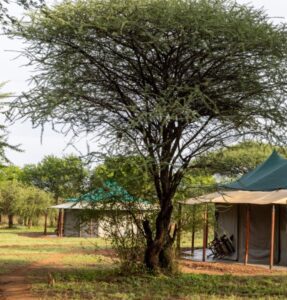
2. Immersive Experience: Eco-lodges are often located in remote areas, offering guests an intimate and authentic experience with nature. The focus is on low-impact travel, meaning fewer crowds and a more peaceful, unspoiled environment.
3. Supporting Local Communities: Many eco-lodges in Tanzania are community-based, providing employment opportunities for local people and supporting community development projects. By choosing to stay in an eco-lodge, you are helping to create jobs and uplift local communities.
4. Conservation Efforts: Eco-lodges often have a direct connection to conservation initiatives, such as wildlife protection and habitat restoration. Your stay at an eco-lodge can directly support these important efforts and contribute to the long-term protection of Tanzania’s national parks.
Conclusion
Tanzania’s national parks are truly a natural wonder, and eco-lodges provide an incredible way to experience these breathtaking landscapes while contributing to their conservation. By staying in eco-lodges, travelers not only enjoy luxurious and sustainable accommodations but also play an active role in protecting the environment and supporting local communities. So, when planning your next safari or nature adventure in Tanzania, consider choosing an eco-lodge. It’s a meaningful way to explore the heart of Africa responsibly and leave a positive legacy for future generations.

